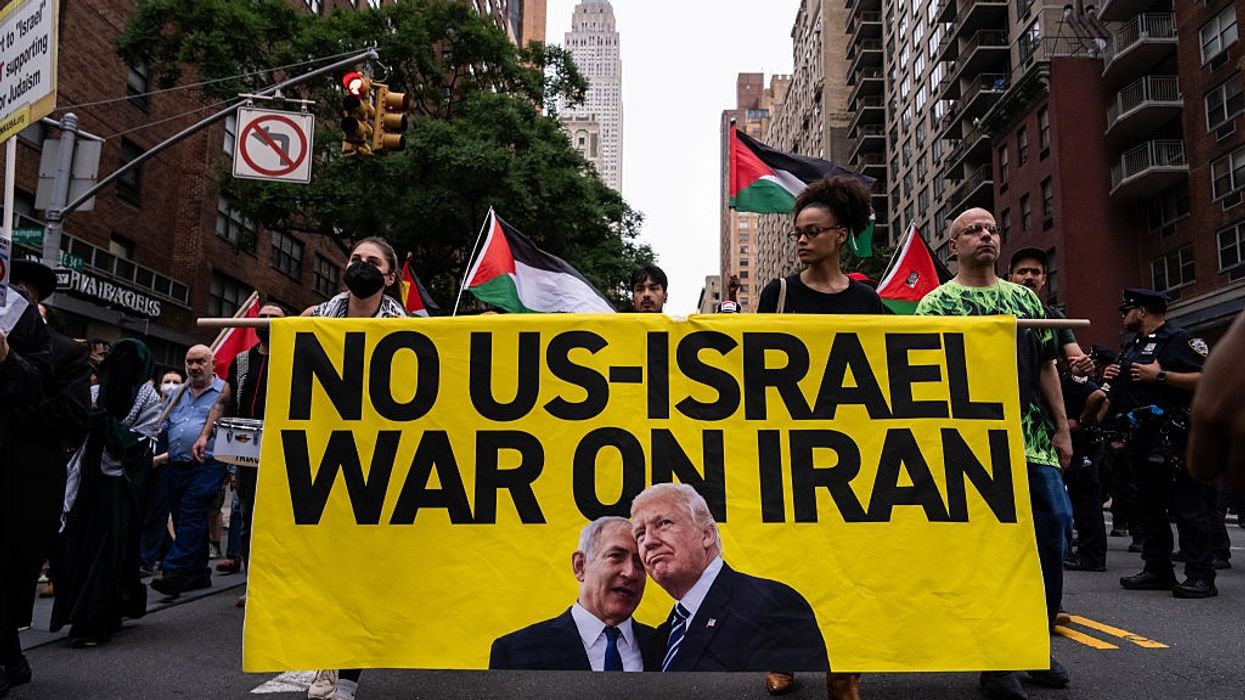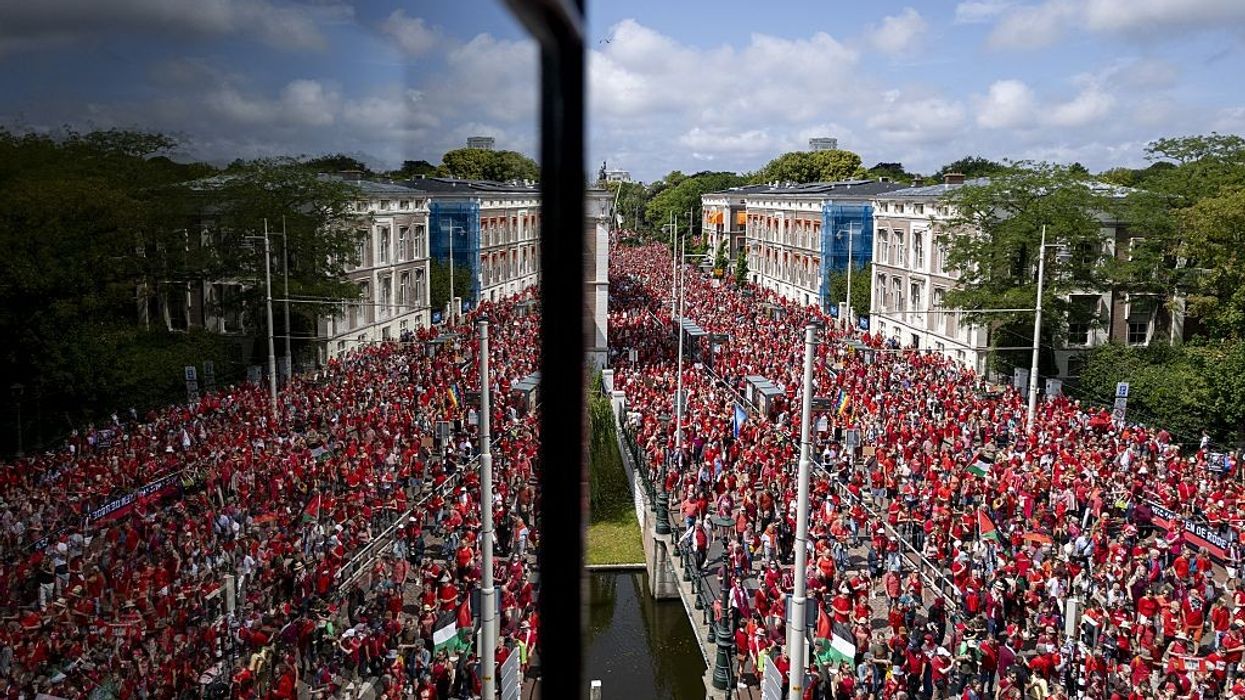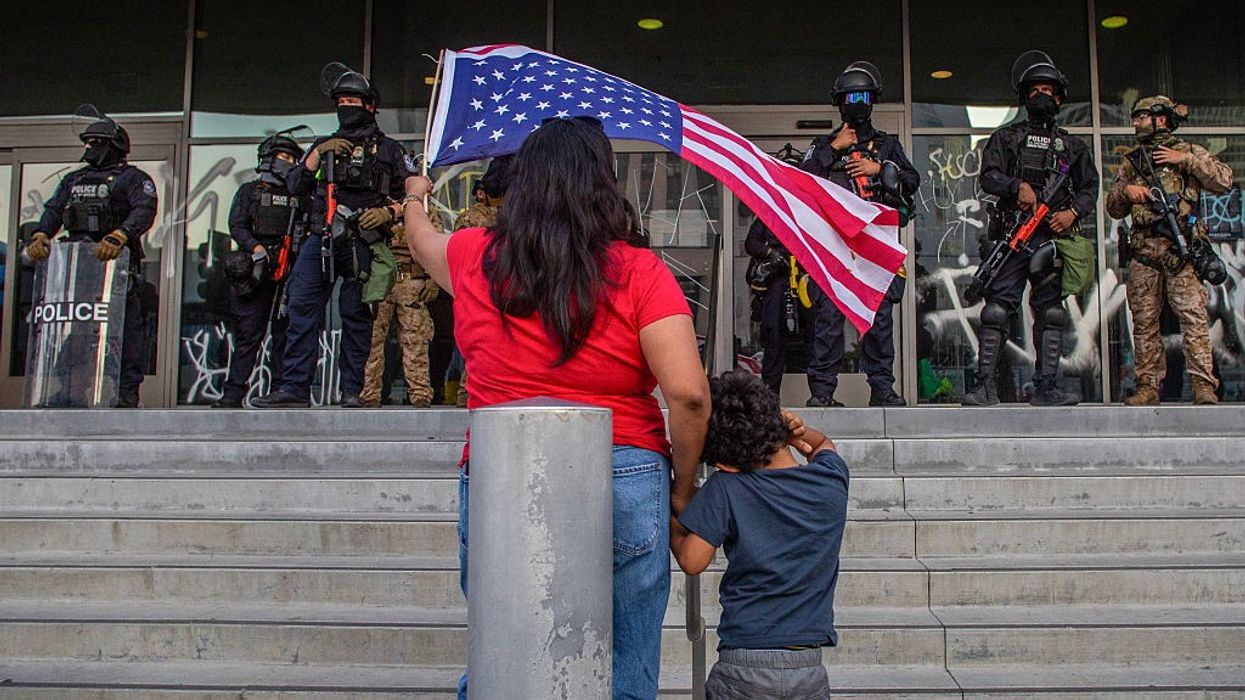‘We’re Being Lied To’: Veterans Protest Trump’s March to War With Iran
Veterans groups are urging members of Congress to invoke the War Powers Act to stop the president from launching an unauthorized attack on Iran.
As the Trump administration threatens imminent war with Iran, veterans of other destructive American wars are sounding the alarm.
As protests broke out across American cities on Wednesday, veterans in cities such as Portland, Oregon and San Antonio, Texas have joined a growing chorus of national anger about the prospect of another Middle Eastern war and called on Democratic leaders to act swiftly to invoke the War Powers Act.
The demonstrations have been organized by groups like About Face, which describes itself as "post-9/11 military members and veterans organizing to end a foreign policy of permanent war," and Veterans for Peace, "a global organization of military veterans" that seeks to "inform the public of the true causes of war and the enormous costs of wars."
On Wednesday evening, a group of protesters gathered outside the Portland office of Sen. Ron Wyden (D-Ore.).
One member of the group, who identified himself as Chris, described the parallels to the Iraq War over two decades ago.
"We saw 20 years ago, we were lied to about weapons of mass destruction with Iraq. And we're being lied to about weapons of mass destruction again with Iran," Chris told KATU-TV, an ABC affiliate.
He called on Congress to invoke the War Powers Act.
"Congress is the branch of government that's supposed to be declaring war, not the executive branch unilaterally," he said.
Following Israel's airstrikes against Iran last week, Wyden called for "diplomatic efforts to curb Iran's nuclear program," adding that Americans "do not want U.S. troops to be dragged into another war in the Middle East." However, he stopped short of co-signing Sen. Bernie Sanders' (I-Vt.) No War Against Iran Act, which would ban the use of federal funds to fight Iran without congressional authorization.
Oregon's other senator, Jeff Merkley, has called for Congress to invoke its war powers.
"It's long past time for Congress to reassert its constitutional role and prevent another disastrous conflict," Merkley said in a statement signing onto Sanders' bill.
About Face held another demonstration in San Antonio on Wednesday night alongside the Party for Socialism & Liberation, where the message was much the same.
"These criminal, genocidal lies killed over a million people, ruined countless lives, wrecked the legitimacy of the United States at home and abroad," the group's South Texas chapter wrote in an Instagram post comparing the current conflict to the war in Iraq.
In recent weeks, veterans' groups have been increasingly outspoken against the Trump administration. According to a June 3 poll from Data for Progress, 70 percent said they opposed his use of active-duty troops in this past weekend's military parade. More than 50 veterans were also arrested protesting the spectacle in Washington, D.C.
That same survey also found that just 10% of veterans believed the U.S. should send more troops to the Middle East, compared with 47% who said there should be fewer.


